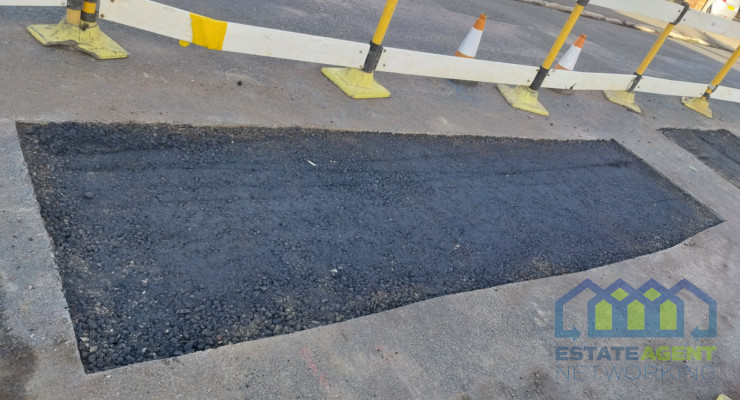Property Fraud: How to protect your bricks and mortar
Becoming a victim of fraud strikes fear into the hearts of many, but have you considered the consequences of your home or investment property being targeted? It really doesn’t bear thinking about. In 2014, property fraud in the UK totalled nearly £10 million.
Since residential property is worth a lot of money and can be sold or used to raise a mortgage, it’s often targeted by fraudsters. Unfortunately, the tactics used by scammers are now so sophisticated that people are increasingly falling victim to property fraud.
What is property fraud?
Property fraud can happen to any owner, but properties that aren’t occupied by the owner or owned outright seem to be most at risk. There are several ways that you could be affected:
- Fraudsters may attempt to sell your property from right under your nose or transfer your asset into their own name by using false documentation or by impersonating you, the registered owner.
- Scams involving identity theft where fraudster apply for a mortgage claiming to be the property owner. The real owner is left in the dark, only discovering the fraud when requests for mortgage payments arrive from the lender.
- Scams targeting the completion of a property purchase/sale, where emails are hacked, funds are intercepted and transferred to the fraudsters’ bank account instead of to the conveyancer, leaving the buyer and/or seller out of pocket.
- Property scams involving quick sale, too-good-to-be-true ‘get rich quick’ schemes, or dubious online selling platforms.
Many homeowners are not aware that Land Registry information is easily available from the website. For only a few pounds, anyone, including fraudsters, can receive a summary of the information HM Land Registry holds for a particular property including the current owner’s name and address, the price paid for the property, if there’s a mortgage and, if so, the lender’s name and address.
Are you at risk?
Any property owner can be targeted by property fraud, however you are more vulnerable if
- You don’t live in the property, particularly if you live abroad
- The property is rented out
- The property is unoccupied
- The property is unoccupied while building works or refurbishments are carried out
- There is no mortgage on the property
- Your property is not registered
- You’ve been the victim of ID theft
What can you do to protect your property from fraud?
If you think you may be at risk of property fraud, there are several steps you should take to secure your asset against fraud.
- Make sure that all your property assets are registered
If you own private property that hasn’t been mortgaged or sold since 1990, it may not be registered with HM Land Registry – which is perfectly legal. However, formalising your ownership of the property will give you proof of ownership and help to reduce the risk of a fraudster successfully impersonating you.
If you hold property with unregistered title, your first action should be to voluntarily register your property ownership with the Land Registry.
- Sign up to the Land Registry Property Alert service
HM Land Registry are offering a Property Alert service that will notify you by email when official searches and applications are received on the property. The service won’t automatically block any changes from being made to the register, but it will enable you to monitor activity and take appropriate action if necessary.
With the ability to register up to 10 properties free of charge, this service is useful for both homeowners and residential property investors with a larger portfolio. What’s more, several people are able to monitor the same property – handy for co-owners and those looking after a property for, say, parents in care.
- Add a restriction to your title
Another safeguard for your property is to put a restriction on the title deeds. This is free for a privately owned property that you don’t live in, otherwise a small charge of £40 is payable. A restriction will ensure that the Land Registry does not register a sale or mortgage on your property unless a conveyancer or solicitor certifies that it was you who made the application.
A maximum of 3 addresses can be registered for this service, and they can include both overseas addresses and email addresses. That way, you can be contacted by the Land Registry if they need to serve notice on you that something has been registered against your title. Obviously, you should keep these addresses updated at all times, so that any potential fraud can be discovered and intercepted as early as possible.
Look at this anti-fraud restriction as a form of ‘burglar alarm’, deterring potential fraudsters when they are searching for suitable properties to target.
- Secure money transfers with solicitors
Email exchanges between solicitors and their clients are at risk of being targeted and intercepted by fraudsters at the point where a property transaction is about to be completed. This typically takes the form of false account details being ‘confirmed’ to the client who will inadvertently transfer the monies to the fraudster.
As a safeguard, many firms of solicitors will now only send financial account details by post at the point of being instructed, stressing that those details will not change. If you later receive different bank details by email, phone your solicitor to make sure you have the correct details.
You should also be aware that it is never safe to email your bank details to anyone – much better to phone or deliver a written note to your conveyancer’s office. Finally, it goes without saying that you should choose a reputable conveyancer or solicitor and check that they are members of the Law Society of the Council for Licensed Conveyancers.









